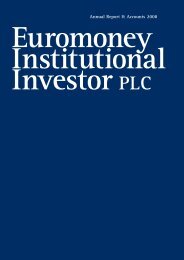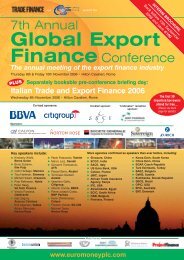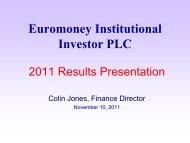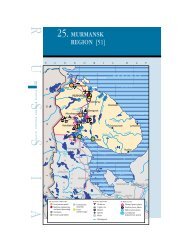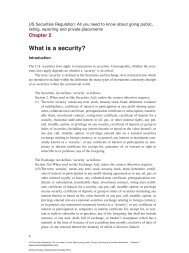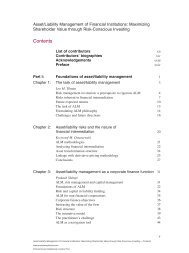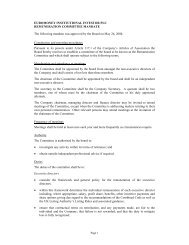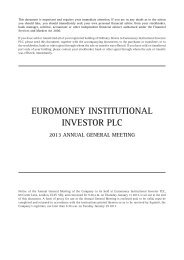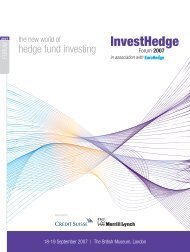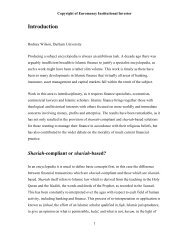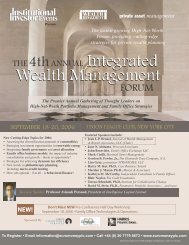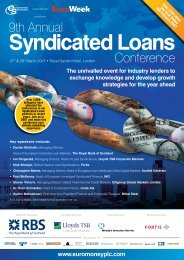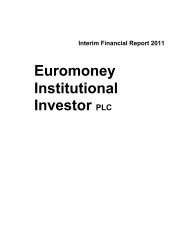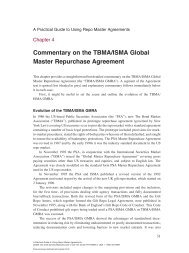Annual Report & Accounts 2012 - Euromoney Institutional Investor ...
Annual Report & Accounts 2012 - Euromoney Institutional Investor ...
Annual Report & Accounts 2012 - Euromoney Institutional Investor ...
You also want an ePaper? Increase the reach of your titles
YUMPU automatically turns print PDFs into web optimized ePapers that Google loves.
<strong>Euromoney</strong> <strong>Institutional</strong> <strong>Investor</strong> PLC <strong>Annual</strong> <strong>Report</strong> and <strong>Accounts</strong> <strong>2012</strong><br />
www.euromoneyplc.com<br />
Sir Patrick Sergeant has served on the board<br />
in various roles since founding the company<br />
in 1969 and has been a non-executive director<br />
since 1992. As founder and president of the<br />
company, the board believes his insight and<br />
external contacts remain invaluable. However,<br />
due to his length of service, Sir Patrick Sergeant<br />
does not meet the Code’s definition of<br />
independence.<br />
The Viscount Rothermere has a significant<br />
shareholding in the company through his<br />
beneficial holding in DMGT and because of this<br />
he is not considered independent.<br />
The Viscount Rothermere and MWH Morgan<br />
are also executive directors of DMGT, an<br />
intermediate parent company. However, the<br />
company is run as a separate, distinct and<br />
decentralised subsidiary of DMGT and these<br />
directors have no involvement in the day-today<br />
management of the company. They bring<br />
valuable experience and advice to the company<br />
and the board does not believe these nonexecutive<br />
directors are able to exert undue<br />
influence on decisions taken by the board,<br />
nor does it consider their independence to be<br />
impaired by their positions with DMGT. However,<br />
their relationship with DMGT means they do not<br />
meet the Code’s definition of independence.<br />
Contrary to provision A.4.1, the board has not<br />
identified a senior independent non-executive<br />
director. However, JC Botts, although not<br />
independent due to his length of service, acts as<br />
senior non-executive director.<br />
Provision B.2.1 requires that the majority of the<br />
nominations committee should be comprised of<br />
independent non-executive directors. Although<br />
the committee consists of four non-executive<br />
and two executive directors, none of these<br />
non-executive directors can be considered<br />
independent under the Code.<br />
Provision B.3.2 states that the terms and<br />
conditions of appointment of non-executive<br />
directors should be available for inspection.<br />
As explained in the Directors’ Remuneration<br />
<strong>Report</strong>, the non-executive directors do not have<br />
service contracts.<br />
Provisions C.3.1 and D.2.1 require the<br />
remuneration and audit committees to comprise<br />
entirely of independent non-executive directors.<br />
The remuneration committee is comprised of<br />
three non-executive directors, one of whom can<br />
be considered independent under the Code.<br />
During the year, the audit committee comprised<br />
four members, only three of which were nonexecutive<br />
directors of the company only two of<br />
whom can be considered independent under<br />
the Code.<br />
On behalf of the board<br />
Richard Ensor<br />
Chairman<br />
November 14 <strong>2012</strong><br />
Corporate Governance<br />
Company <strong>Accounts</strong> Group <strong>Accounts</strong> Our Governance<br />
Our Performance<br />
35



